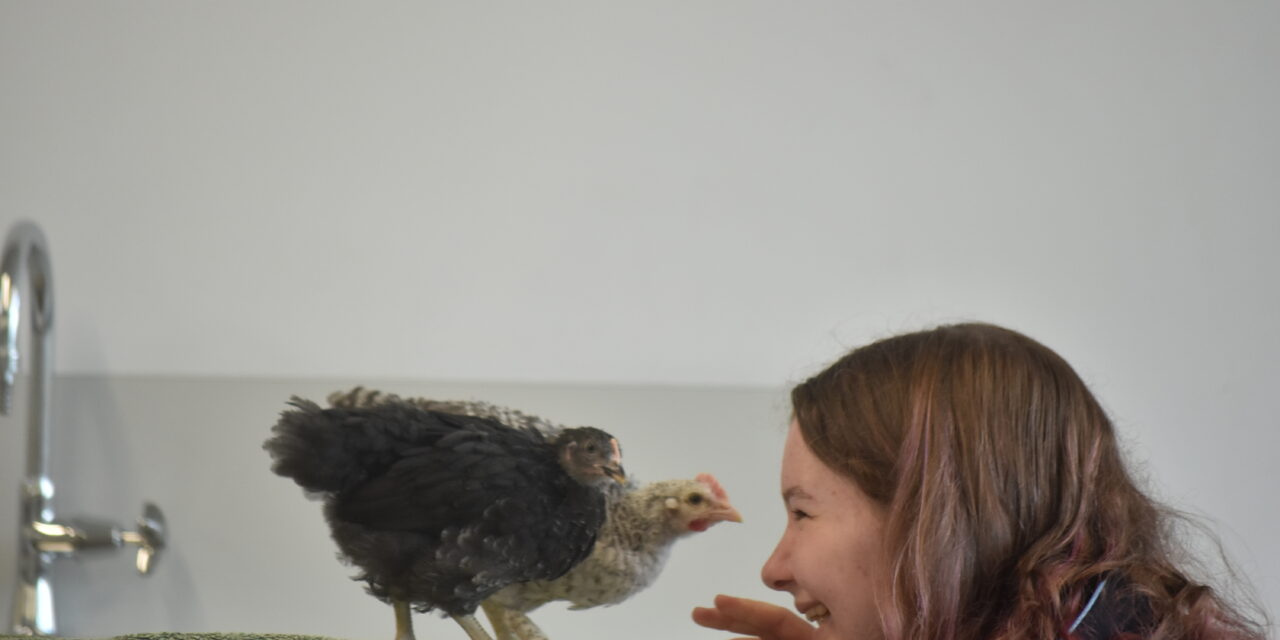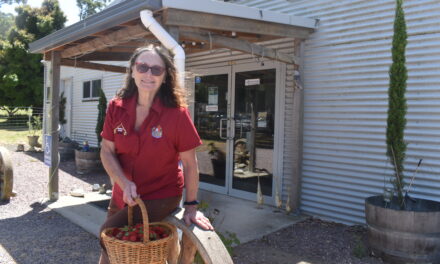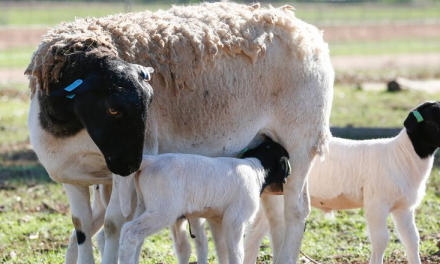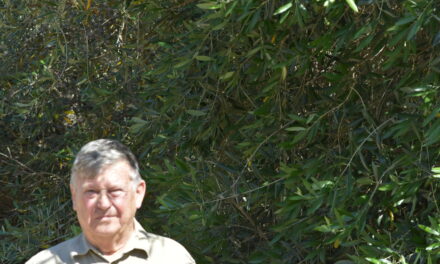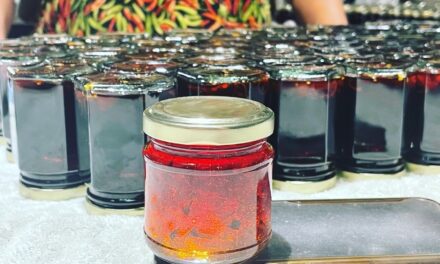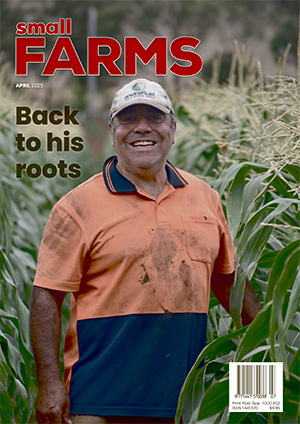Hawkesdale P-12 College is addressing that with its agricultural program and small on-school farm it is helping to raise the next generation of potential farmers.
From chooks to calves and lettuces to beetroot, the students learn a bit about all the major farming pursuits in the region.
For some students it’s a way of working with their hands and learning about animals, for others it’s an introduction to a potential career.
After a two-year absence due to the pandemic, the ag program restarted at the beginning of 2022 as an option for Year 9 and 10 students and has since been heavily subscribed.
The program starts with wool in term one — reflecting the area’s strong sheep industry — and continues in term two with the other major commercial industry — dairy.
Poultry is the focus in term three and term four covers broader issues such as reproduction and how to deal with waste.
The wool classes involve working with Rural Industries Skills Training, learning how to shear and finding out about the texture of the product.
The students get to raise two calves for a local farmer and complete the Cows Create Careers course as part of the dairy program.
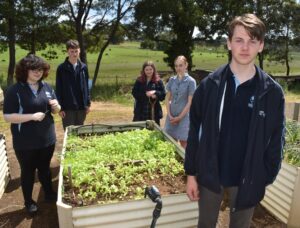
Riley Leske-King, Travis Anderson, Kylla McCarroll, Loralie Gibbs and William Fairhall-Price at one of the ag program’s garden beds.
Throughout the year, the students tend to the vegetable and garden beds and they have also taken on responsibility for the colourful aviary.
The program is scattered around the school. The garden beds are near the back carpark, the chook pen was built by the Hands on Learning program students, the aviary and guinea fowl pens are nearby, the calves are housed in an old shed, and the vegetable patch is on the north side of the school.
One of the priorities is learning about animal husbandry and teacher (and local dairy farmer) Karrinjeet Singh-Mahil keeps the learning topical by including discussions on newsworthy subjects such as climate change and animal diseases.
Mrs Singh-Mahil said the students were embracing the farming life.
“I always have full classes and the kids love it,” she said.
There is a strong focus on raising animals and ensuring they are well fed, with beets grown in the vegie patches used to feed the chooks, guinea fowl and birds.
When raising the calves for three weeks, students measure their growth and feed them as the farmer wants them to be fed.
Like the other classes, the wool subject focuses heavily on sustainability.
“I bought an old woollen suit at the op shop and cut it up to compare it to other fabrics,” Mrs Singh-Mahil said.
“We try to rip it, burn it, mop up water with it and look at the sustainability of each type of fabric.”
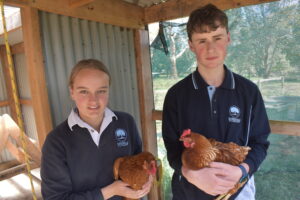
Tiffany Dell and Travis Anderson with some of the school’s award-winning chooks.
Last year the students planted potted perpetual lettuce seedlings, later selling them for $2 per punnet.
For some students, it’s a way of trying healthy food options.
“I asked one of the kids to pick a leaf and chew on it and tell us what it tastes like,” Mrs Singh-Mahil said.
“He screwed up his face and said ‘I’m not eating that’ but one of the other kids picked the leaf and chewed on it and said that’s not bad.
“By the end, we’d go out each class and pick lettuces, wash them and spin them with a salad spinner and pack them in little takeaway food containers and try to sell them in the staff room, but the kids wanted to take them home.
“Quite often the lettuce leaves didn’t make it home because they were eaten on the bus.”
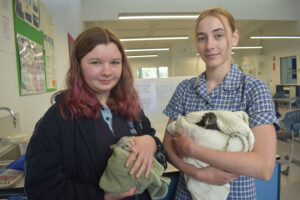
Students Kylla McCarroll and Loralie Gibbs tend to young chooks.
During October, the students have been monitoring eggs in an incubator while also raising two young chickens in their classroom.
They previously hatched two guinea fowl out of eggs.
“We keep them in another pen and will let them go in a couple of months,” Mrs Singh-Mahil said.
“We hope they will roost in the trees and discourage snakes.”
The students have also found state-wide success, bringing home a blue ribbon at this year’s Melbourne Royal Show for their chooks.
The students looked after five pullets as part of the agricultural programs, measuring their growth, monitoring their feed and counting and weighing their eggs.
The best three chooks were taken to the show for judging and the Hawkesdale team came home with first prize.
For students, the program is fun and educational. Year 9 students Kylla McCarroll and Loralie Gibbs were attracted by the hands-on nature of the program and say it could be the start of a potential career in agriculture.
Kylla lives on a small hobby farm with a few cows.
“It sounded fun and I like getting my hands dirty and going out and doing stuff,” she said.
“I learnt how to shear sheep, about cows, sheep and all the important animals.”
Loralie lives in town in nearby Penshurst.
“I like being outdoors instead of a classroom and doings hands-on stuff,” she said.
“I like raising the calves and the chickens and doing something that I wouldn’t usually do.”
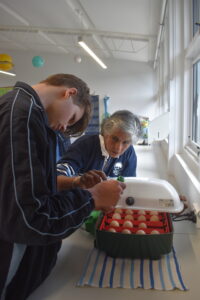
William Fairhall-Price uses the age-old candling process to check if the eggs, due to hatch the following week, are healthy. He is supervised by teacher Karrinjeet Singh-Mahil.
Acting principal John Ralph said the school recognised agriculture as the economic and employment backbone of the local and wider community.
“We work hard to expose our students to as many different experiences within this industry as we can so that they can take advantage of the huge range of pathways into agriculture once they leave school,” Mr Ralph said.
“Our ag elective is very hands-on, and has exposed students to a variety of industry areas, from the woolshed to the vegetable garden.
“Our students particularly enjoy interacting with the chooks — naming and feeding them, looking after their care, and checking their growth.”
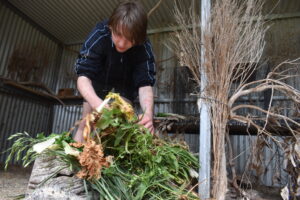
Callum Johnstone-Robinson feeds some of the school-grown beets to the birds in the school aviary.

